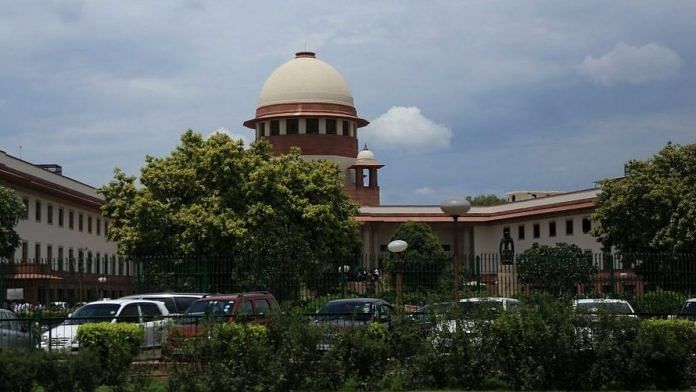New Delhi: A five-judge constitution bench of the Supreme Court Wednesday struck down as unconstitutional rules framed under the Finance Act, 2017 on appointment and service conditions of members of key tribunals. The court directed the central government to draft fresh set of rules.
The SC also said appointments to tribunals should be according to the respective statutes forming the tribunals.
The bench, headed by Chief Justice of India Ranjan Gogoi, said validity of the passage of the Finance Act, 2017 as a Money Bill should be decided by a larger bench. The court’s decision came on a batch of petitions challenging the constitutional validity of Finance Act, 2017 — passed by the Parliament as a Money Bill — which had revamped schemes concerning the functioning of tribunals.
Justice D.Y. Chandrachud, in his authored verdict, stated that “allowing the Centre to have control over the different facets of tribunals affects their independence”. He also proposed the setting up of a National Tribunal Commission and an All India Tribunal Services to manage appointments. Besides Chandrachud and Gogoi, the bench also comprised Justice N.V. Ramana, Justice Deepak Gupta and Justice Sanjiv Khanna.
Also read: CJI office comes under RTI Act, says Supreme Court
Finance Act, 2017 as Money Bill
The government had, in April, justified passing the Finance Act, 2017 as a Money Bill by saying the latter has provisions which deal with salaries and allowances to be paid to members of tribunals from the Consolidated Fund of India. Appearing for the government, Attorney General K.K. Venugopal had then said salaries and allowances of tribunal members would come under incidental matters referred to in Article 110 (1)(G) of the Constitution.
The government had also argued that certification of the Finance Act, 2017 as a Money Bill was approved by the Lok Sabha speaker and hence the court cannot judicially review this decision.
Senior advocate Arvind Datar, who led the arguments for petitioners, however, argued that a bill cannot be classified as a money bill only because it says salaries will be paid to members of tribunals.
Datar also sought making the tribunals independent or brought under the control of the law ministry or one nodal agency, as was held in 1997 and 2010 verdicts of the apex court.
It is to note that the SC had earlier also sought the central government’s view on bringing all tribunals under one umbrella body to ensure their “efficient functioning” and “streamlining the working” of quasi-judicial bodies.
The SC had then also said directions given by the apex court in its two verdicts of 1997 and 2010, of bringing all tribunals of the country under one nodal agency, should have been “implemented long back”.
Also read: You can’t coerce India to adopt digital payments. Here’s what Modi govt should try instead






